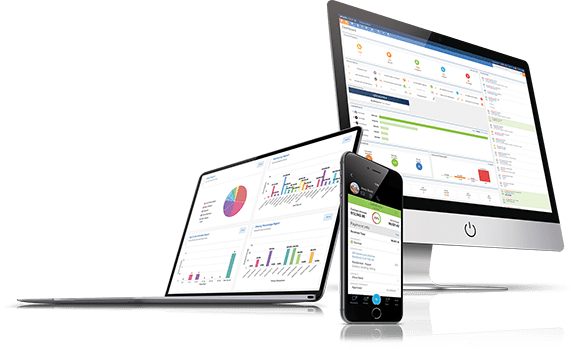As a business owner or office manager, your attention is almost always being pulled in all different directions at once. You’re trying to process a material order in the office or from your truck, and someone from another job site calls about an issue with another order – all of sudden, you’re not sure if the first job ordered brown shingles, or if you transposed that order from the one you were processing or the issue you were solving…it can get very confusing, very fast, and that comes from trying to multitask too many functions at once.
Maybe you’re thinking, “You just don’t understand how busy we are. Besides, I don’t know about you, but we have to multitask! It’s part of the job.” We all get busy, but don’t fool yourself into thinking that you are actually multitasking because, believe it or not, the concept of multitasking is a myth.

The Myth of Multitasking
When you are trying to process a job file, and then stop to read that text that just came in, your mind actually stops what it is doing for a moment, so it can switch to the new thing that you told it to focus on. Then, when you’re done, it switches tasks again, back to the file. According to Psychology Today, research shows us that task switching is mentally “expensive.”
- It takes more time to get tasks completed if you switch between them than if you do them one at a time.
- You make more errors when you switch than if you do one task at a time.
- If the tasks are complex, these take time and error penalties increase.
- Each task switch might waste only 1/10th of a second, but if you do a lot of switching in a day it can add up to a loss of 40% of your productivity
Right now, maybe you’re thinking, “Well, I’ve been multitasking so long, I’ve gotten really good at it.”
Scientists tell us that the more we multitask, the worse we get at focusing on anything for very long, because it effectively rewires our brain, and makes it harder to focus on a single task at hand. Basically, your brain gets used to bouncing around. So instead of monotasking, and doing one thing with focus and accuracy, you do dozens of things, none of them very well, and all of them prone to mistakes.
So what’s the harm with these distractions?
In one study, students who were interrupted with a text message while taking a test answered correctly 20% less often than those who weren’t interrupted.
How do you think this might relate to putting a work order together, or giving a crew detailed instructions about how to fix an unexpected problem on the job? Your customers are paying you to be the expert, and provide them an excellent product, but multitasking and allowing yourself to be distracted makes it scientifically harder to do that.
How do we reduce distractions?
Most of us use a smartphone and computer to get work done these days, but these tools are also the source of many of our distractions, however important. How can we fight back against everyone and everything that wants our attention while we are trying to do the best job we can?

Here are 4 ideas that anyone can implement to immediately reduce distractions in their life:
Disable your notifications. Turn them off. On your phone. On your computer. You don’t need to know about that email the SECOND it comes in, or respond to that text message in less than 30 seconds. On that note…
Practice what psychologists call “batch processing.” For instance, decide on a few times a day when you are going to read and reply to your emails. Then, when the time comes, open up your email, do your thing, and then close it. It’s hard. But it’s important to remember that it will still be there in an hour when you are ready to read them again.
Silence your cell phone while you are working on an important project. There are even apps available that will help you control whose alerts you receive (e.g. Let texts from your boss through, but not your neighbor who likes to send you funny cat videos), and WHEN they should come through (e.g. Silence your phone every weekday from 9-12 and then from 1-4). Check out this link for a few ideas.
Take a break! Seriously, stop for 5 minutes a few times a day and walk away. Walk around the building, or even meditate. You will come back and get more work done in the remaining 55 minutes of that hour than you would have without the break.
We are all busy these days, and anyone can be susceptible to distractions. There will always be people that need your help, and emergencies you need to attend to; that’s just life, but your business needs you to try and let go or reduce distractions that you don’t really need to react to, as much as you just want to.
AccuLynx is the most powerful tool for your roofing business. With simple to use software, industry leading tools, connections to suppliers you trust and the best customer support — AccuLynx makes it easy to grow faster than your competition.
